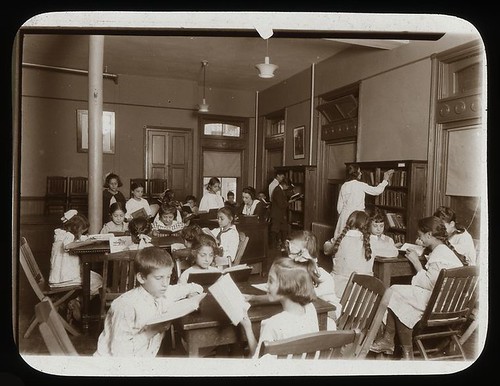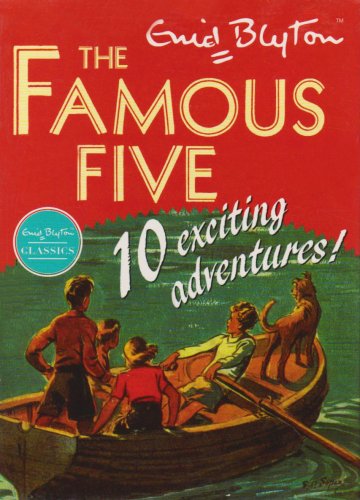
The first time I tried to check out a book from the library, that is, a book
with no pictures, I was in first grade. The book was
A Vote for Love. Evidently, I had been roaming on the other side of the children's section and found the metal racks where the teenage romance novels were kept. When I took the book to the circulation desk, the librarian eyed the book then eyed me, and wanted to know if I realized the book had no pictures. I was terribly insulted.
Yes, I knew it had no pictures. Obviously, it has no pictures. Maybe she even dared to ask me to get my mother's permission.
. . .
Forgive me. I want to go on, but only because I need another library story to read. It is Friday, after all. And dedicated reader, you've been following
What She Might Think, so you know what every Friday has meant all summer: a visiting poet or fiction writer has appeared to share a new, original essay on his or her childhood experience at the library. More than 1,000 readers know what Friday means here at
What She Might Think, for that's how many readers came to read library essays this short summer.
But the wind is busy pushing summer backward in order to allow autumn to do what autumn has always done best: signal the end of warm, good things. The Summer Library Series is over.
Editing the series has been, for me, one of those experiences that, while it's happening you both know you don't want it to end and that it absolutely will. The essays themselves will not stay on
What She Might Think forever. It is, after all, each writer's work, and this website is no library archive. Every writer wrote out of interest in the project and, I would say, a generous understanding of generosity. Because of that, we must give them back their work. Even the grasshopper knew that the ants' generosity had its limits. So it is not just the end of summer, but nearly the end of our time to read the essays, too.
But now is now, and so reflections are here for only now, and they're artful, beautiful, strange, beating things:
Once upon a time, in a library,
Owen Egerton smuggled horror novels into the children's section and "wished to God [he] could read!"
Matthew Brennan's mother was a painter, and her paintings hung in a library long gone.
Jack Kaulfus rode her bike almost every day one summer in Texas to air-conditioning, to a library, to a man who never questioned why she was choosing the books that she did, only her thoughts about them.
Dan Powell waited for a van of books to stop so that he could climb up the stairs to one of the most traveled vehicles that came through Colwich.
Laura Ellen Scott's desk was empty at school because she was busy walking four miles to a library where there were enough books that she never encountered a nurse romance if she didn't want to. The library discarded what came to be
TJ Beitelman's favorite book, and he took care of it so that he could return it to the library, not knowing that they wouldn't take it back.
John Kenny's library was a toyshop.
Juliet E. McKenna just read and read read and read.
Heather Anastasiu's town took place at her library.
David Hadbawnik became David Hadbawnik over the course of reading in libraries while in Van Nuys, California, a little girl named
Kathryn L. Pringle, fell in love with a statue outside her library and then decided to become an archaeologist. Steinbeck killed
Stacey Swann's pony in Sealy, Texas. And then the library ended on a Saturday in Cincinnati for
Stona Fitch.
The series is over, but autumn is lovely, with the leaves how they change, and the air on your cheeks. It is just the weather for a long walk that leads to a library. All our library authors are there, too, waiting for you in the shelves.
Warm Regards,
Erin Pringle-Toungate
THE SUMMER LIBRARY SERIES
LIBRARY AUTHORS
Special thanks to the photographers who gave permission to What She Might Think expressly for this project. Many of the photographers were librarians themselves.





